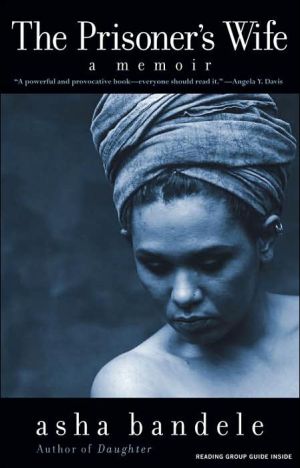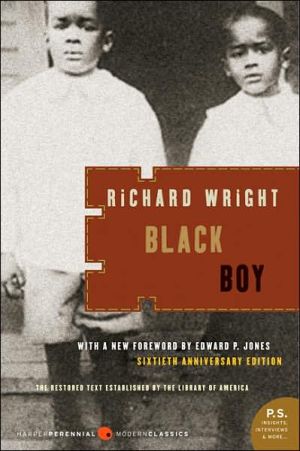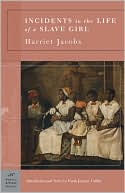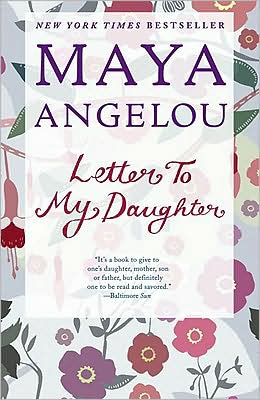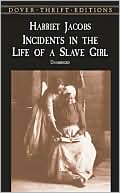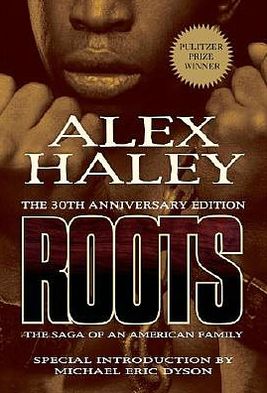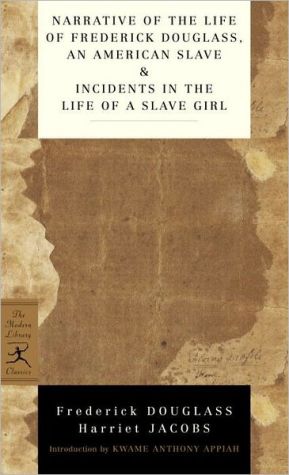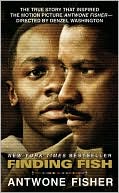The Prisoner's Wife
As a favor for a friend, a bright and talented young woman volunteered to read her poetry to a group of prisoners during a Black History Month program. It was an encounter that would alter her life forever, because it was there, in the prison, that she would meet Rashid, the man who was to become her friend, her confidant, her husband, her lover, her soul mate. At the time, Rashid was serving a sentence of twenty years to life for his part in a murder. The Prisoner's Wife is a testimony, for...
Search in google:
Many of us have wondered at the motivations of women who meet and marry men who are in prison for the long term or even life. What motivates them? How do they reconcile their feelings with the man's past actions and with the fact that their married life together will be limited, for the foreseeable future, to occasional, brief visits? Asha Bandele is one such woman; at the age of 25, she fell in love with a man who was serving 20-years-to-life for murder. And yet she married him. In The Prisoner's Wife, she reveals her reasons and shares with the reader the trials, tribulations, and yes, triumphs of a life shared with a man she only seldom sees. In this excerpt, Bandele recalls her very first meeting with her husband, Rashid.Library JournalThis book explains the inexplicable: how a talented young poet from a good family and privileged background could meet, fall in love with, and marry a prisoner serving 20-to-life for murder. As bandele says "I didn't fall in love with a killer. I fell in love with a man committed to the transformation of himself, of the world." They meet when she is among a group of African American activists giving readings at prisons. The prison, she says, "because of its stance against love made me take a stance for love." Her prison visits become personal visits as she and Rashid share stories of their lives and he helps her confront and overcome a history of sexual abuse. Their decision to marry, and thus have conjugal visits, seems offhand but not awry, given their deep emotional intimacy. The author has a poet's fluid skill with language and maintains a lyrical tone throughout, even in the uncertainty following denial of her husband's appeal and bandele's realization that he will be locked up for at least seven more years. For all public libraries.--Janice Dunham, John Jay Coll. Lib., New York Copyright 1999 Cahners Business Information.
Chapter One: This Is a Love Story\ This is a love story like every love story I had always known, like no love story I could ever have imagined. It's everything beautiful — bright colors, candle-scented rooms, orange silk, and lavender amethyst. It's everything grotesque, disfigured. It's long twisting wounds, open and unhealed, nerves pricked raw, exposed.\ This is a love story, awake and alive. It's a breathing document, a living witness. It's human possibility, hope, and connection. It's a gathering of Spirit, the claiming of dreams. It's an Alvin Ailey dance, a rainbow roun' mah shoulder. It's a freedom song, a 12-string guitar, a Delta blues song. This story is a reprieve.\ This is a love story, threadbare and used up, yet sometimes fat, weighty, stretched out of shape. It's polyester, this story, man-made, trying to be pretty, not quite making it. This is a story desperate to hold itself together. This is a story with patches in the knees.\ This is a love story, my love story and thousands of other women's love story. It's a story that's known, documented, photographed, videotaped, audiotaped, filed, photocopied, watched over, studied, caricatured, questioned, researched, and noted.\ This is a love story. It's the one we keep close, sheltering it from judgment. It's lovers denied at family dinners and at office parties. It's secret glances at Polaroid pictures. It's whispered names. This is a story hidden within midnight bus rides and 5:00 A.M. van rides, behind metal detectors, electronic doors, and steel slamming against steel.\ This is a love story, the one not generally discussed in polite or even public conversation. But if there's one thing that I do know about myself, it's that I know I hate secrets, that secrets mean shame, and that I am not now, nor will I ever be, ashamed that I am a woman who has loved someone, and that someone loved me.\ And even though so many people have asked me if I have lost my mind, if I am lonely, or desperate. Even though so many people have wondered if I was having a crisis, or determined that I was just going through a phase, I will continue loving the man I am loving. I will love him even though he's got an ugly past, skeletons, and sorrow. Even though he doesn't have a great job or position or power, and even though he's a prisoner at a maximum-security correctional facility, which my husband, Rashid, is, I will continue loving him.\ And this is our story.\ The first time I ever went into a prison, it was for a class I was taking on the relationship between Black people and incarceration in the United States. Months later, long after final exams had been taken and grades received, my former professor called me and asked if I would come with him and a few other people to a place called Eastern Correctional Facility in upstate New York. It was just about eighty miles from Brooklyn, where I lived. He wanted me, he said, to participate in a Black History Month program.\ Don't you write poems? he asked.\ You could read your poetry, he said.\ I agreed and we all went to do the program, and this was how we met, Rashid and I, convict and student, gangster and poet, resident host and visiting performer.\ Rashid is fine as hell, which I tried not to but couldn't help noticing the very first time I saw him. He looks like this beautifully symmetrical collaboration between Africa and India. He isn't huge, not an overwhelming presence, contrary to the usual celluloid interpretation of Black prisoners. Rashid is 5'7", with a brave smile and bright eyes. He is, I remember thinking this then, just the right size, and I could look directly at him, nearly eye to eye. His voice, which was never loud, told a story of a transplanted Afro-Caribbean.\ Where are you from? I wanted to know.\ The Boogie Down, he responded, meaning the South Bronx.\ And before?\ Oh, oh, he said, understanding my question. Guyana. South America. It's the most beautiful place in the world. That's a hell of a thing in one life, huh? To have seen the most beautiful place in the world and the most horrible place. And I'm not even thirty yet!\ After that, a number of other men came over to me to tell me how much they enjoyed my performance, and would I be willing to read their work, when was I coming back up, could they write to me to discuss poetry, did I know I reminded them of this sister they used to know back in the day? In the midst of these questions, Rashid left me. I watched him as he walked across the huge auditorium where the program was being held. He weaved easily through the nearly one hundred men gathered there, through the orange chairs, across the stage, the back of it, and found another guest to talk to, a poet like me. A very talented poet, I should say, and a very attractive one. I waited for him to come back over to me. I tried to will him to come back over to me, but finally I was left there annoyed because Rashid did not return until it was time to say good-bye.\ After we were in love, Rashid would tell me that it was me, my fault, that I was hard to approach. He told me that while I was an animated and exciting performer, offstage I was quiet, withdrawn, cool and distant.\ Besides, he admits now, through a series of childlike giggles, every dude knows when you really want to talk to a sister, you don't step to her directly. You step to her friend, and that's what I did. I talked to that other sister, the poet who performed before you, because that way I knew I'd get your attention. I mean, what I'd look like trying to talk to you when all of them other dudes were running they game on you? You know what I'm saying?\ Rashid is so pleased with himself as he tells me this story five years after our first encounter. After all, in the moment of his confession, we are in a visiting room, and I lie, as fitted as possible, in the crook of his arms. And in that moment, despite every hurting and hell I have had to endure to love this man, there is no other place that I would rather be.\ When we began, I was twenty-five, a student and organizer, a wife on the verge of divorce from my first husband, a poet full of secrets and sadness, an emerging woman hampered by insecurities and anger, a human being fighting off loneliness while craving solitude, needing an open love, long honest discussions, a quiet touching at my core.\ When we began, he was twenty-nine, inmate number 83*****, a convicted killer doing twenty years with life on the back, a model prisoner, a program coordinator, the father of a nine-year-old boy he had never been able to raise, a lawyer without a law degree, a devoted Muslim, a man on the verge of divorce from his first wife, a human being fighting off loneliness while craving solitude, needing an open love, long honest discussions, a quiet touching at his core.\ We were exactly the same and we were completely different.\ We were never meant to be together.\ We were always meant to save each other.\ Copyright © 1999 by asha bandele
\ From Barnes & NobleWhy does a well-educated, seemingly "normal" young woman fall in love with a convicted-and imprisoned murderer? Poet Asha Bandele's very personal and sometimes painfully lyrical response to that question makes her romance between the bars seem understandable, even logical. Far from seeing her infatuation with twenty years-to-lifer Rashid as self-delusion, we finish this memoir with a realization of how injured humans can heal one another.\ \ \ \ \ Library JournalThis book explains the inexplicable: how a talented young poet from a good family and privileged background could meet, fall in love with, and marry a prisoner serving 20-to-life for murder. As bandele says "I didn't fall in love with a killer. I fell in love with a man committed to the transformation of himself, of the world." They meet when she is among a group of African American activists giving readings at prisons. The prison, she says, "because of its stance against love made me take a stance for love." Her prison visits become personal visits as she and Rashid share stories of their lives and he helps her confront and overcome a history of sexual abuse. Their decision to marry, and thus have conjugal visits, seems offhand but not awry, given their deep emotional intimacy. The author has a poet's fluid skill with language and maintains a lyrical tone throughout, even in the uncertainty following denial of her husband's appeal and bandele's realization that he will be locked up for at least seven more years. For all public libraries.--Janice Dunham, John Jay Coll. Lib., New York Copyright 1999 Cahners Business Information.\ \ \ Kirkus ReviewsA haunting, intensely emotional memoir of the middle-class author's relationship with a man jailed for murder. In lyrical, flowing prose, columnist and performance poet Bandele (Absence in the Palms of My Hands, not reviewed) presents piercing portraits of herself, the man she loves, and a prison system designed to stifle all sensibility. Growing up in a black, middle-class world of private schools, summer camps, dance lessons, horseback riding, art classes, and gymnastics, Bandele is groomed to believe that success and independence are her birthrights. At 21 she is married in an expensive, formal June wedding to a highly respected young man. Two years later her marriage unravels, and the writer finds herself ardently drawn to a convicted murderer she meets while giving a poetry reading at an upstate New York prison. While coming to terms with her role in this unorthodox relationship, which eventually leads to marriage, Bandele examines with painful honesty a past riddled with sexual abuse and several suicide attempts following prolonged depressive episodes. Rashid, the inmate, emerges as a spiritual, sensitive soul who is also the victim of childhood brutality. Bandele successfully conveys the callousness of the prison system, where inmates and their visitors are dehumanized through strip searches, scrutinizing glances, and insensitive comments. (Even a passionate conjugal visit is interrupted by a security count.) While much of the writing deals with feelings, the writer also dispassionately reports on the redemptive role that Islam plays in her husband's life as a "code for living, a structure, a set of rituals, a chart directing him through every minute of every day." To Bandele, bycontrast, it is merely a set of stifling rules that smother her spirit. "I do not want to be in a religion where men cannot shake my hand or hug me unless we're married," she tells Rashid in one of their unresolvable debates. Mesmerizing and disconcerting, offering insights into why caged birds sing.\ \
